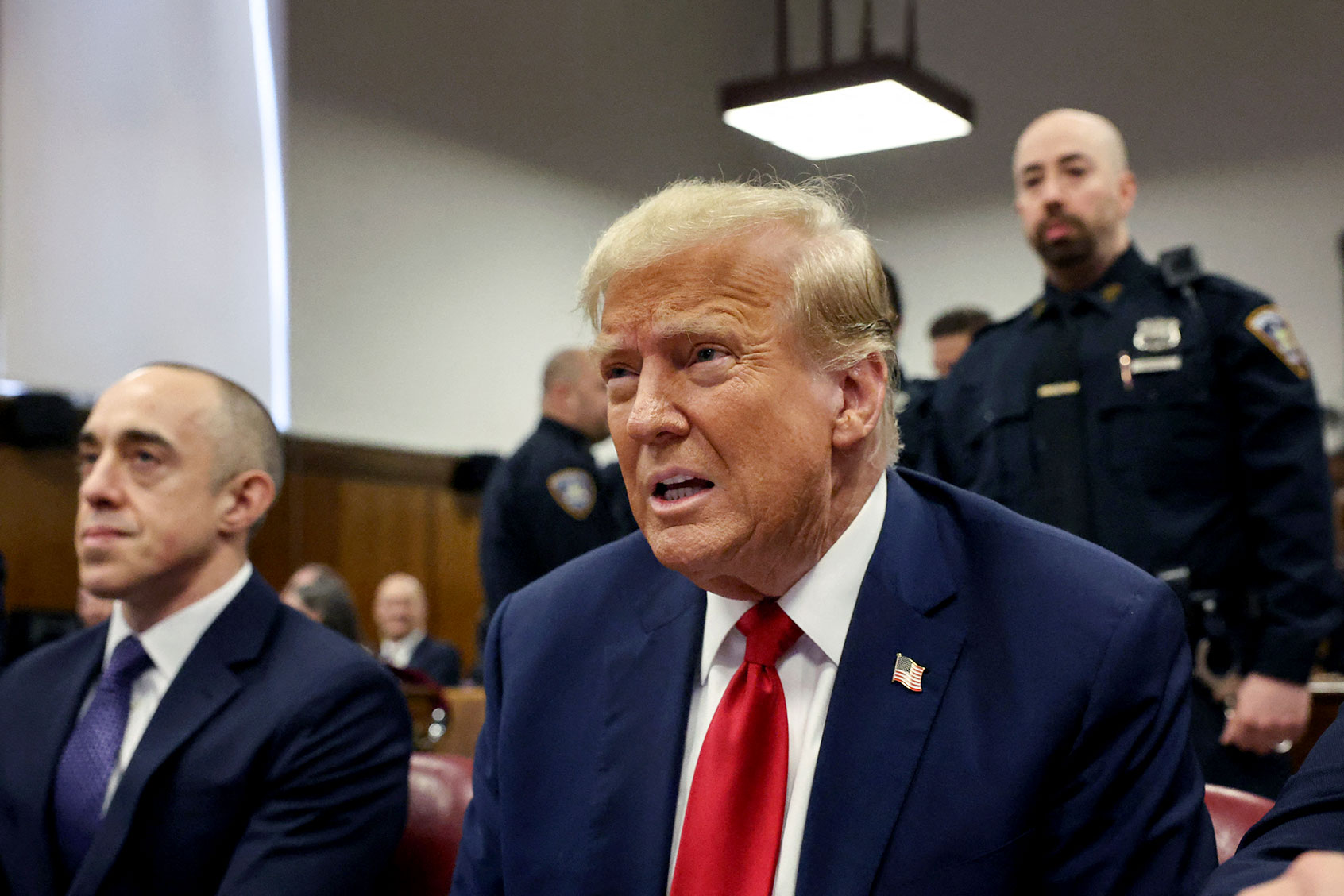Manhattan prosecutor Joshua Steinglass on Thursday presented text messages from an editor at the National Enquirer that suggested participants in Donald Trump's alleged hush money scheme knew their actions were criminal in nature.
According to the texts, read aloud by Steinglass, former National Enquirer editor Dylan Howard wrote to an unnamed relative, "[Trump]'s just been named President-elect… at least if he wins I will be pardoned for electoral fraud."
Howard and publisher David Pecker were allegedly involved in a $150,000 payment made by National Enquirer parent company America Media Inc. (AMI) to Playboy model Karen McDougal, purchasing exclusive rights to her life story in an effort to bury her claims of an affair with Trump. Pecker, testifying this week in Trump's crimianl trial, said that in addition to demanding money, McDougal wanted to write for celebrity magazines, be on the cover of health-and-fitness titles, and anchor red-carpet events for Radar Magazine.
At the time of the payment, Pecker went to great lengths to keep the deal secret from the rest of the AMI newsroom. “I believed that that payment would raise a lot of questions and issues and be communicated to the rest of the editors, which is something I didn’t want to happen,” he testified Thursday.
Pecker's discretion and Howard's texts appear to contradict the argument of Trump's lawyers, who have called the falsification of business records to conceal the hush money payments as a "bookkeeping" case and "a very minor thing."
But Judge Juan Merchan, despite being bashed by Trump as biased against him, ruled that the texts could not be admitted as evidence.
"What we have here is a private conversation between a co-conspirator and a family member," Merchan said, adding that to allow its admission would be an "error."


